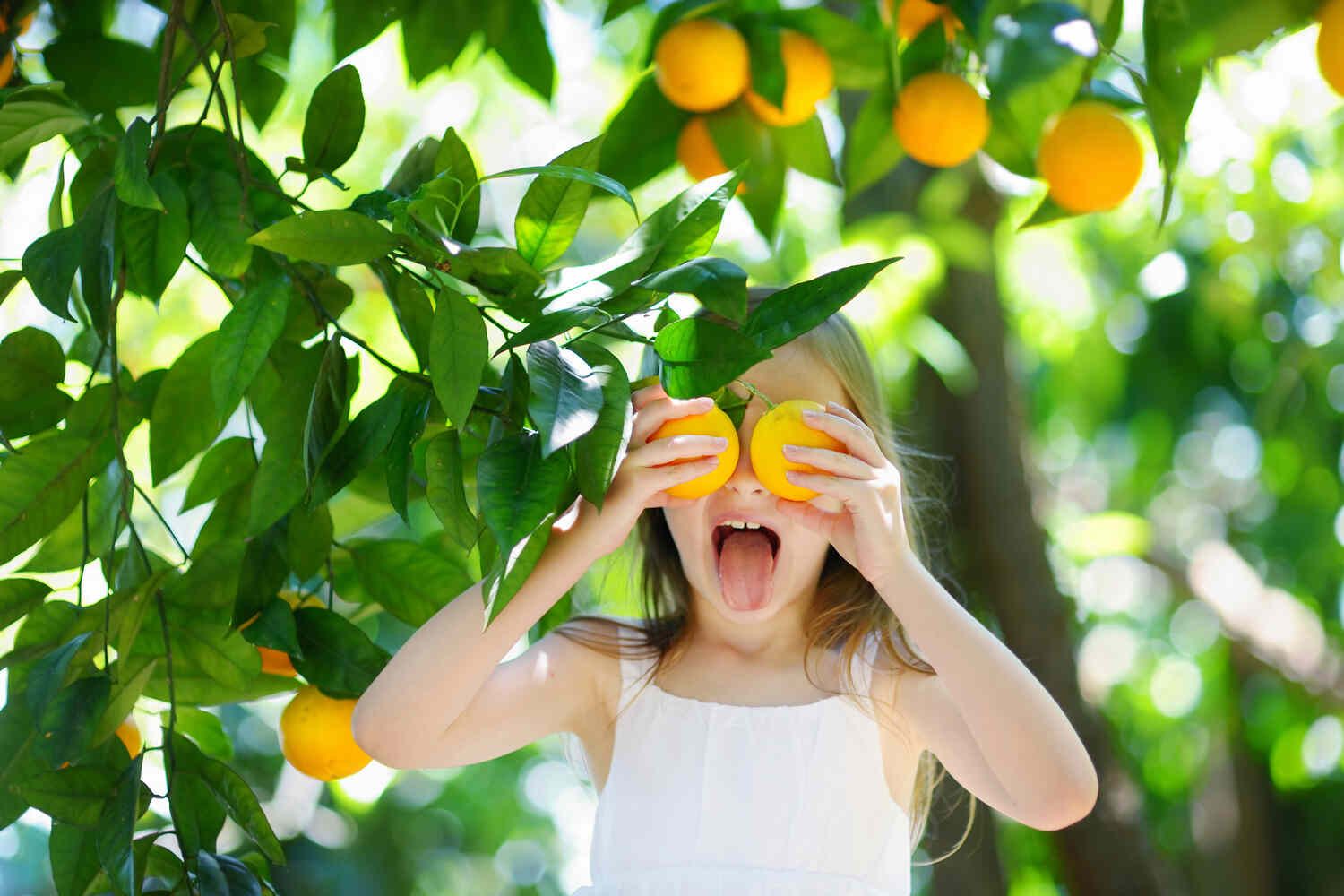
Citrus fruits come in attractive bright colors, a sweet smell, and a perfectly round shape. Most importantly they taste heavenly with their sweet and tangy flavor. So citrus fruits have everything to attract your toddler to eat them readily. This is good because citrus fruits are packed with the power of vitamin C. Hence citrus fruits for toddlers are a must, especially during the winter season.
To know why citrus fruits are so important for toddlers you need to know what citrus fruits are. You also need to know the benefits of citrus fruits in your toddler’s diet. It is also important for you to understand how to extract the maximum benefits of citrus fruits for toddlers. Here is a complete guide for you.
In This Article
- What Are Citrus Fruits?
- What Are The Natural Sources of Vitamin C?
- Top Benefits of Citrus Fruits For Toddlers
- Are There Any Side Effects of Citrus Fruits For Toddlers?
- FAQ’s
What Are Citrus Fruits?
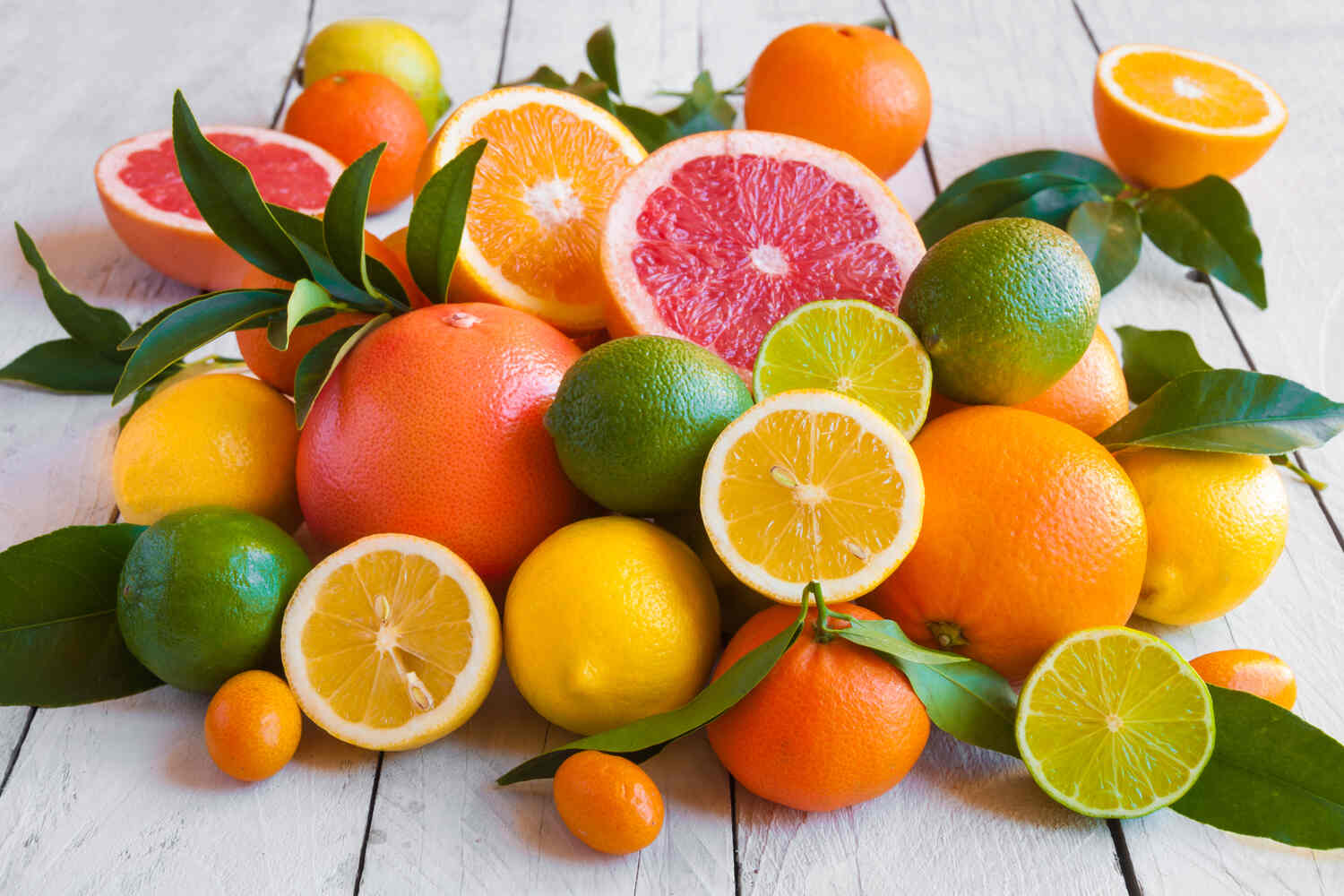
Citrus fruits are a sweet, tangy, and juicy group of fruits that belong to the Rutaceae family (1). Citrus fruits are marked by their significant thick bitter outer layer or leathery rind and white pith with surrounding juicy sacs.
There are quite a lot of varieties of citrus fruits available such as-
- Oranges
- Limes
- Lemons
- Mandarins
- Grapefruit
- Pomelos
- Citron
- Yuzu
- Sudachi
Citrus fruits are native to Australia, Southeast Asia, New Guinea, and New Caledonia. But today they are cultivated in tropical areas all over the world. Citrus fruits are popular for their sweet and tangy flavor.
What Are The Natural Sources of Vitamin C?
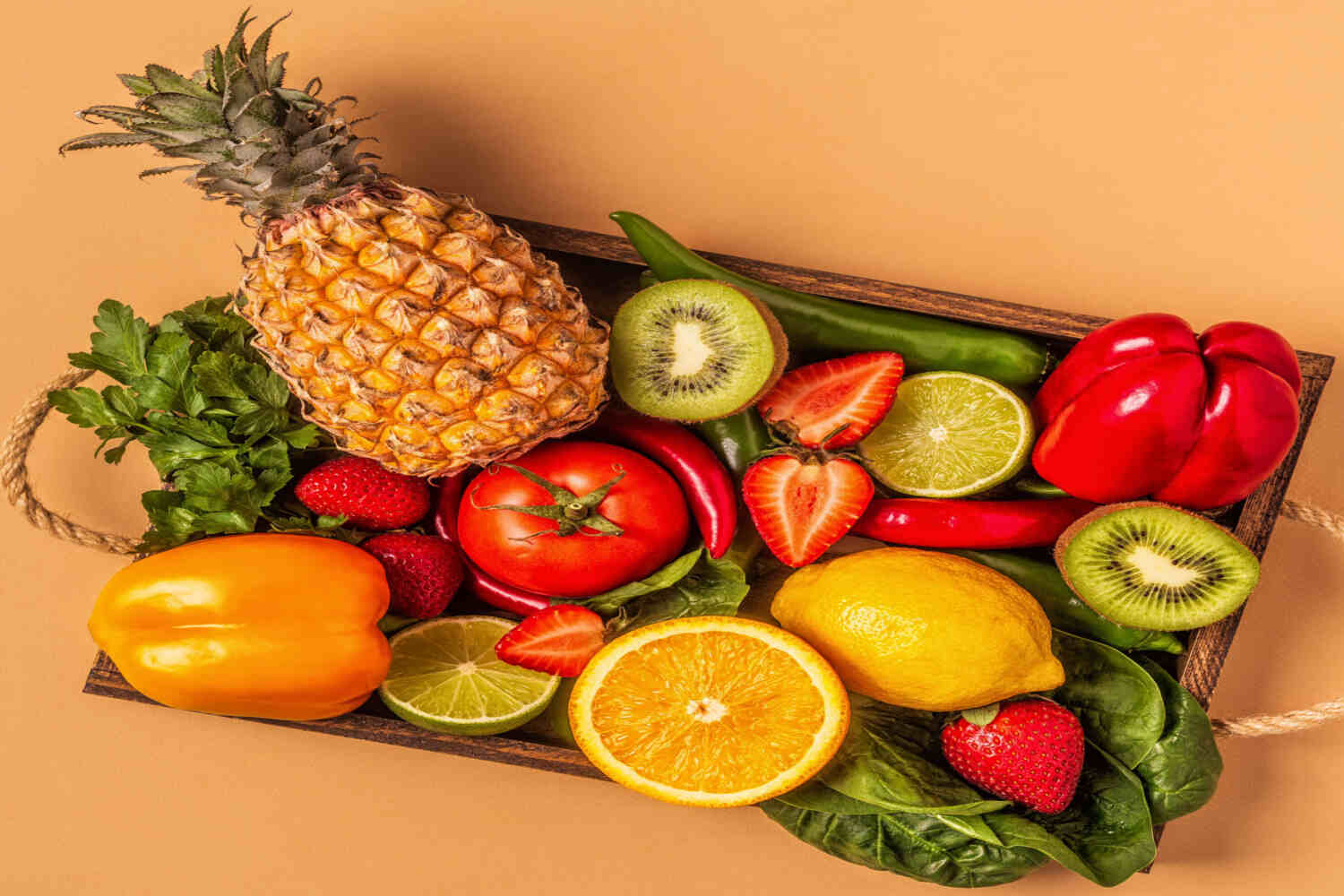
Fruits and green vegetables contain plenty of vitamin C. But citrus fruits are on the top of the list of natural sources of vitamin C (2). Other natural sources of vitamin C are-
- Broccoli
- Peppers
- Chilies
- Tomato
- Brussels sprouts
- Cabbage and cauliflower
- Strawberry
- Guava
- Kiwi
- Mango
- Blackcurrants
- Potato
There are so many natural sources of vitamin C that it is difficult to have a vitamin C deficiency. Generate a love for fruits and veggies in your toddler to ensure enough vitamin C regularly.
Top Benefits of Citrus Fruits For Toddlers
Citrus fruits have huge benefits for toddlers. You can give them pieces of orange or sweet lime as finger food or make juice for your messy eater. Here are the top benefits of citrus fruits for toddlers-
Boosts Immunity
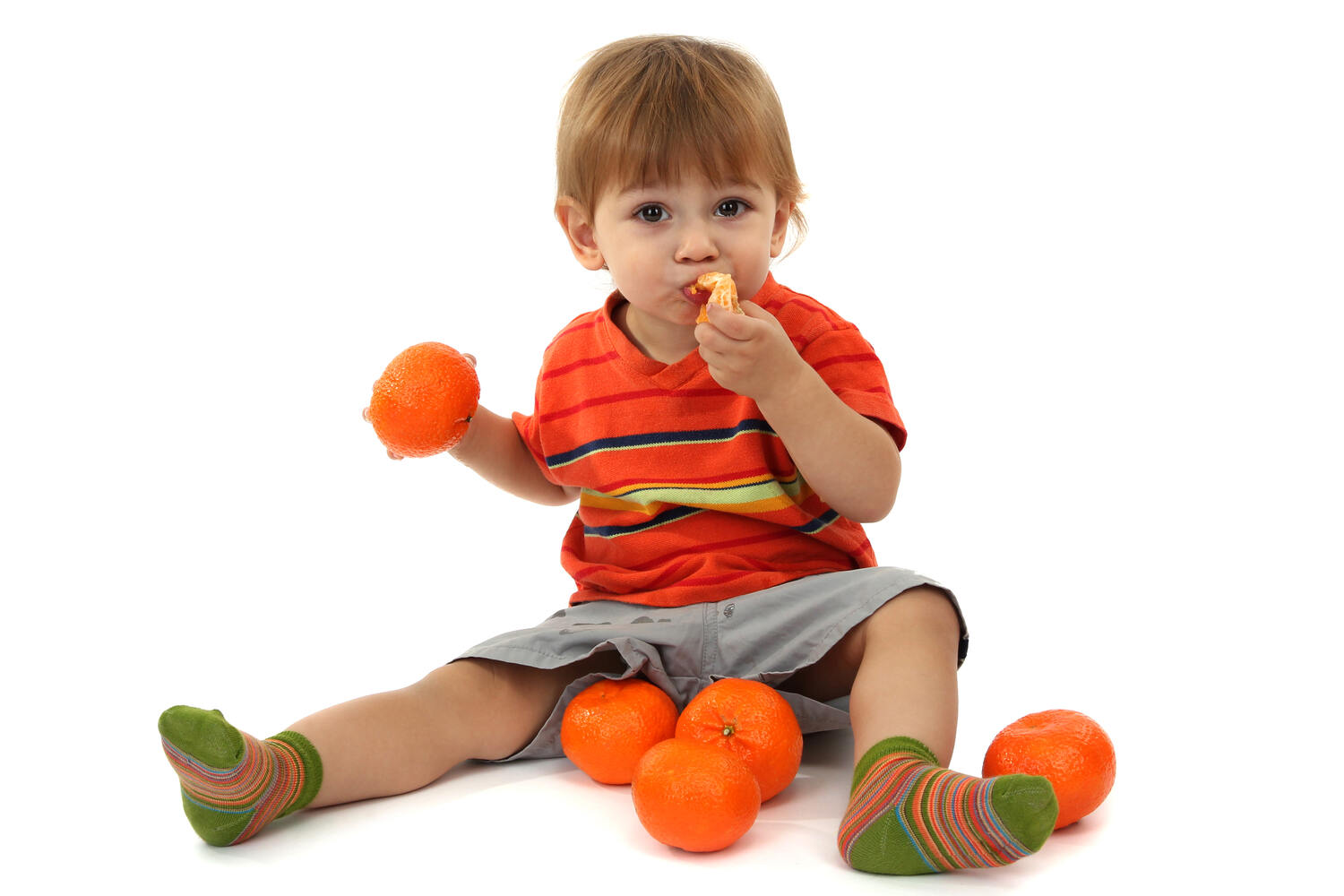
Other than being a primary source of vitamin C, citrus fruits also contain B vitamins, magnesium, potassium, phosphorus, and copper (3). Citrus fruits are full of antioxidants and anti-inflammatory compounds, carotenoids, flavonoids, and essential oils that boost immunity. So adding citrus fruits to your toddler’s daily diet will improve their immunity against seasonal flues, coughs and colds (4).
Prevents Scurvy And Other Symptoms of Vitamin C Deficiency

Symptoms of vitamin C deficiency such as scurvy are dry and bruised skin, loose swollen and bleeding gums, brittle hair and nails, etc (5). Raw or uncooked food with vitamin C can effectively prevent scurvy. Thus by providing oranges, limes, and grapefruits to your toddler, you can prevent problems related to vitamin C deficiency.
Rehydrates The Body
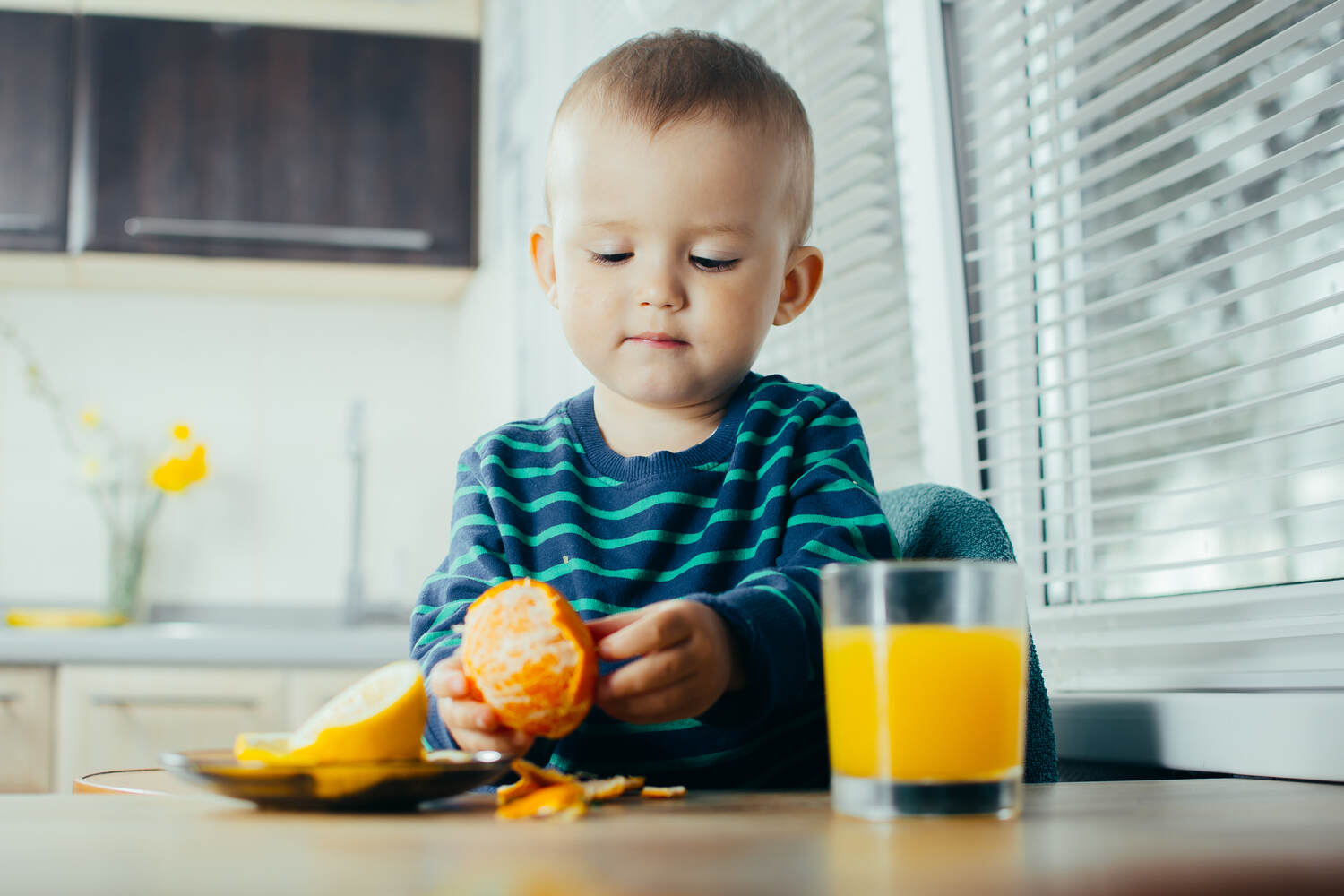
Around 80% of the citrus fruits are water (6). So eating any of them can act as an instant rehydration for your toddler’s body. During winter we generally reduce water intake that can lead to dehydration. So you can offer a cup of oranges or grapefruits to your toddler to ensure hydration with added nutrients.
Helps to Fight Constipation

Citrus fruits contain soluble fiber that is good for digestion and bowel movement. According to a USDA report, one orange or grapefruit contains 2.8 g of fiber, significantly contributing to our daily fiber requirements (7). Childhood obesity is a big problem nowadays with the popularity of junk food and deep-fried snacks among children. Fiber-rich citrus fruits as a snack will keep your toddler full for a long time and help them stay at a healthy weight.
Good For Skin And Nails

We know how important vitamin C is for good skin and nails. Citrus fruits in your toddler’s daily diet will help to improve overall skin quality and texture (8). On the other hand, citrus fruits can prevent brittle nails in children by boosting collagen production.
Helps Prevent Anemia
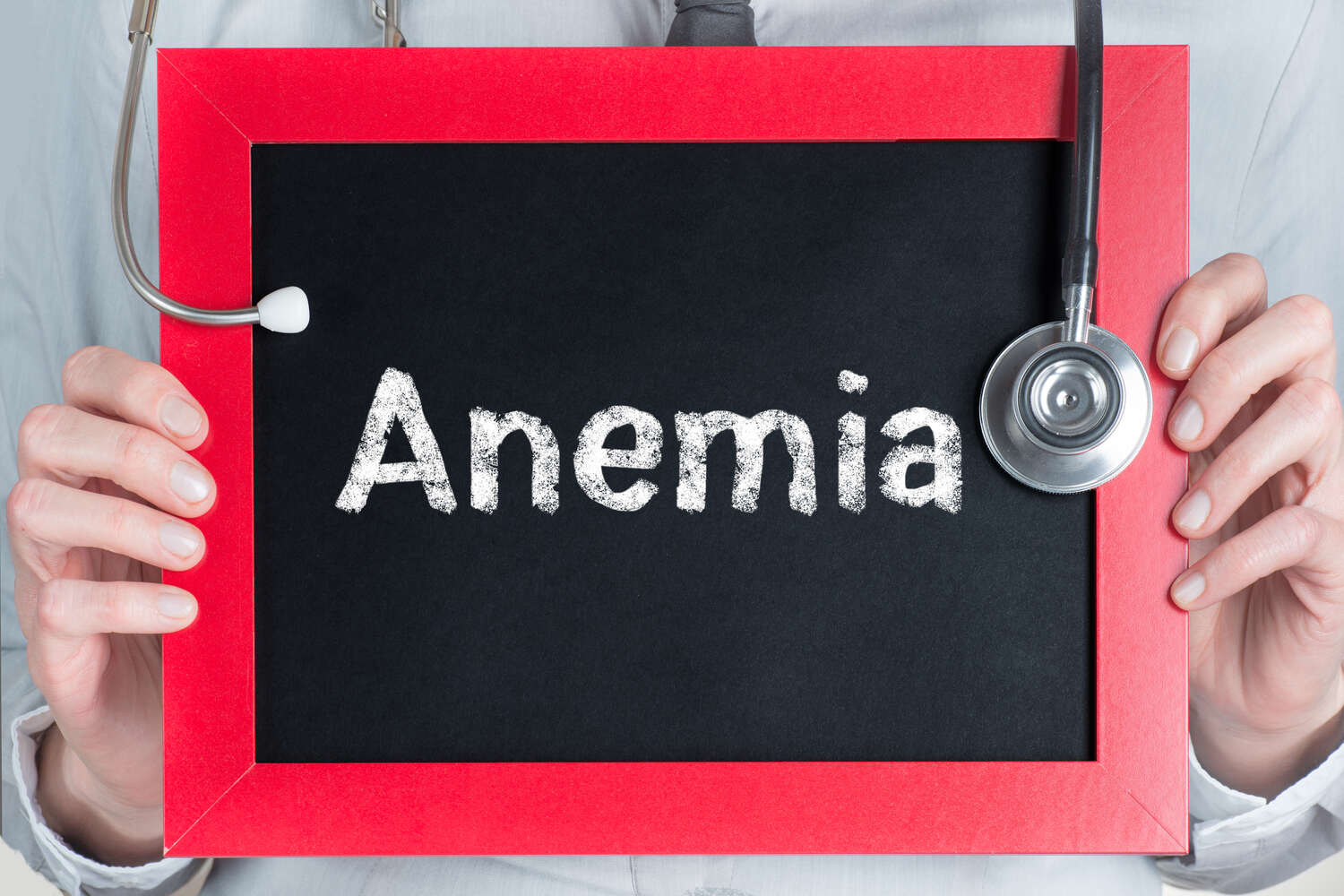
Anemia or iron deficiency in the body occurs when the level of iron in the body is low. Iron is a very important mineral which the body needs for various functions. Toddlers and young kids are at a risk of developing anemia due to their poor eating habits. Vitamin C helps to improve the iron absorption in the body and thus prevent anemia (9). If your toddler is eating citrus fruits, it will be helpful to improve the iron level in their body and prevent anemia (10).
It is important to note that one can get most of the benefits of citrus fruits only if you take them as a whole.
Are There Any Side Effects of Citrus Fruits For Toddlers?

Citrus fruits are healthy and safe for toddlers. But as we all know, excess of anything is harmful. This applies to consumption of citrus fruits as well. Here are few side effects of eating too many citrus fruits for toddlers-
Overconsumption Can Cause Cavities
Eating lots of citrus fruits can lead to tooth decay in toddlers. This is because the acidic juice of citrus fruits can erode tooth enamel (11). Once the enamel is gone, the teeth become exposed to decay and other dental issues.
Gastritis And Diarrhea
Eating too many citrus fruits like oranges, will lead to overconsumption of fiber as well. That much fiber in the body can result in gastric problems and diarrhea (12). So do not provide citrus fruits to your toddler on an empty stomach or after the evening as they increase the risks of gastritis.
Allergy
Citrus fruits can cause allergic reactions if your toddler has grass pollen allergies (13). The allergic reaction to citrus fruit includes itching, swelling, and redness of the skin with a burning sensation. Sneezing, wheezing, runny nose, nausea, and stomach pain are some other symptoms of citrus allergy.
Looking at the manifold benefits it is imperative to introduce citrus fruits to your toddler. Consuming citrus fruits will have multiple benefits for your little one, as listed in the article. However, citrus fruits for toddlers need to be given in a controlled amount. As too much citrus can also have some side effects for the body. So, next time your toddler asks for oranges or sweet lime, go ahead and let them eat it. Remember, eating a whole fruit is always better than juicing it.
FAQ’s
1. Can a Toddler Eat Oranges Everyday?
Yes, a toddler can eat oranges regularly. Oranges are highly beneficial and a healthy source of vitamins and fiber for a toddler. So eating some pieces or a whole orange for a toddler every day is completely fine. However, restrict the intake of oranges to only one orange in a day. Overconsumption of oranges can cause stomach problems.
2. Can a Toddler Eat Oranges at Night?
No, it is not good to offer oranges to your toddler before bedtime. This is because oranges are acidic and can cause indigestion, bloating, and sleep disturbances. Try to give oranges or any other fruit to your toddler during the daytime or at least before 6 pm.
3. Are Lemons Good For Toddlers?
Yes, lemons are as good as any other citrus fruits for toddlers. Lemons boost immunity and help to fight infections like common cold etc. Lemons keep the gentle skin, and nails of your toddler healthy from within.
References
- Mineral Content of the Pulp and Peel of Various Citrus Fruit Cultivars – [https://pubmed.ncbi.nlm.nih.gov/31030384]
- Vitamin C – [https://ods.od.nih.gov/factsheets/VitaminC-HealthProfessional/]
- Citrus fruits as a treasure trove of active natural metabolites that potentially provide benefits for human health – [https://www.ncbi.nlm.nih.gov/pmc/articles/PMC4690266]
- Consumption of fresh fruit rich in vitamin C and wheezing symptoms in children – [https://www.ncbi.nlm.nih.gov/pmc/articles/PMC1745721]
- Vitamin C Deficiency – [https://www.ncbi.nlm.nih.gov/books/NBK493187/]
- Roles of citrus fruits on energy expenditure, body weight management, and metabolic biomarkers: a comprehensive review – [https://pubmed.ncbi.nlm.nih.gov/37702528/]
- Oranges, raw, all commercial varieties – [https://fdc.nal.usda.gov/food-details/746771/nutrients]
- The Roles of Vitamin C in Skin Health –[https://www.ncbi.nlm.nih.gov/pmc/articles/PMC5579659/]
- Iron bioavailability and dietary reference values – [https://pubmed.ncbi.nlm.nih.gov/20200263/]
- Effect of vitamin C supplementations on iron deficiency anemia in Chinese children – [https://pubmed.ncbi.nlm.nih.gov/1642785/]
- Citric acid consumption and the human dentition – [https://pubmed.ncbi.nlm.nih.gov/267657/]
- 4 Signs You’re Eating Too Much Fiber (Yes, It Is Possible) – [https://www.drselhub.com/4-signs-youre-eating-much-fiber-yes-possible/]
- Citrus Allergy from Pollen to Clinical Symptoms – [https://www.ncbi.nlm.nih.gov/pmc/articles/PMC3537725/]
